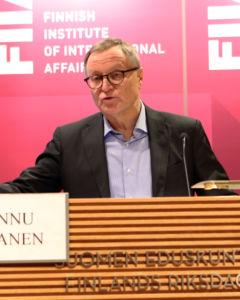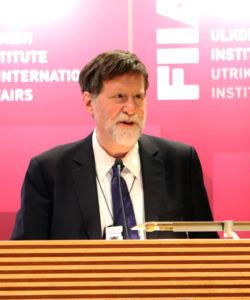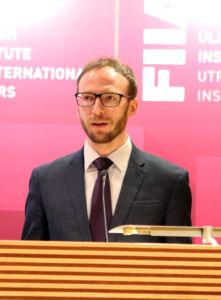China and Russia are currently challenging the US leadership of the international system. However, their deepened cooperation is fragile as it reflects a joint reaction towards US power rather than a true strategic alliance. Their views on the Western–led international order also differ decisively. The relationship between the US and Russia is equally imbalanced, as it suffers from conflicting expectations. The US refuses to recognise the great power status which the Russian leadership is desperately longing for. Russia has reacted by adopting a destabilising policy globally and regionally, which furthermore complicates great power relations.
The seminar marks the publication of the final report of a research project (Changing Great Power Politics and Its Implications for Finland) funded by the Government Plan for Analysis, Assessment and Research for 2018. The report is entitled The Sino-Russian and US-Russian Relationships: Current Developments and Future Trends.




comments
Elina Sinkkonen
Elina Sinkkonen is Senior Research Fellow at the Finnish Institute of International Affairs. She received her doctorate from the University of Oxford, Department of Politics and International Relations in 2014 and has taught regularly at the University of Helsinki since 2008. Sinkkonen has published on Chinese national identity construction and coedited an award-winning book on new roles of women in Chinese society. Her further research interests include Chinese nationalism, public opinion issues in China, authoritarian regimes, regional security issues in East Asia as well as the domestic-foreign policy nexus in IR theory.